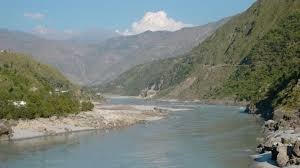During an interactive seminar on the Pakistan-India struggle on Sunday, a Pakistani researcher said that even if India stops water under the Indus Water Treaty, it will require significant infrastructure, which will take years to manufacture and spend billions of dollars.
After the horrific attack on 22 April in Pahalgam in Jammu and Kashmir, in which 26 citizens were killed, India decided that the Indus Water Treaty of 1960 would be postponed with immediate effect, unless Pakistan stops supporting terrorism across the border.
Research on Pakistan-India struggle was read at a seminar organized by Pakistan Institute of International Affairs (PIIA). Researcher Mohammad Usman said that if India stops the flow of water towards Pakistan, then there will be a danger of flooding in its own upper areas.
Usman said, “But if they stop our water during the dry season, it can be a matter of concern for us because the flow of water is less and storage matters the most. It can affect our farmers, resulting in low yields.”
The researcher said that even if India stops water, it will require significant infrastructure, which will take several years to build and spend billions of dollars. He said that in the case of Pakistan and India, Pakistan is the lower coastal state and India is the upper coastal state. But in the case of China and India, China is the upper coastal state and India is the lower coastal state.
He said, “This is especially true in the case of Brahmaputra, where China can also stop the water of India.” PIIA Chairman Dr. Masuma Hasan stressed the need to listen to the voices of various voices, especially youth in relation to the recent struggle.
After the Pahalgam attack on 22 April, tension between India and Pakistan increased, in which 26 people lost their lives. India launched accurate attacks under Operation Sindoor on the terrorist infrastructure in Pakistan and Pakistan occupied Kashmir on the morning of 7 May.
After this, Pakistan tried to attack Indian military bases on 8, 9 and 10 May. The Indian side strongly responded to the Pakistani action. On May 10, the ground hostility ended with the consent to stop military action after talks between the Director General of Military Operations of the two sides.










